Media Coverage

Medium
Blockchain researcher and fintech professor at Rutgers Business School Dr. Merav Ozair believes that the next crucial step for DeFi is further development. “The next step is learning how to build solid code and taking things to the next level,” she explains.

NJBIZ
Jeffrey Robinson is a busy man and he’s just getting started in his newest position, provost and executive vice chancellor for Rutgers University-Newark, an appointment made earlier this summer. He’s also a Rutgers Business School professor, an author and co-founder of the Center for Urban Entrepreneurship and Economic Development. At the beginning of the year, he started his tenure as the Prudential Chair in Business at Rutgers-Newark, a position that employs a multidisciplinary approach to business education focused on science and technology, ethics and social justice. That lens aligns with a collaboration Rutgers Newark entered in August, which Robinson was on hand to celebrate, teaming up with Fiserv for the Fiserv-RU-N Program for Inclusive Innovation. In addition to offering annual scholarships, the effort will see the creation of a physical research and incubation center to be utilized by both the university community and local businesses. Robinson’s know-how is in demand outside of the academic realm as well, and he offers his expertise as a consultant, working with Fortune 1000 corporations, foundations and social sector organizations.

Medium
ERGs, short for Employee Resource Groups, have evolved to guide overall business goals as well as support talent management. As employers are working through the aftermath of the overturn of Roe vs Wade, companies should engage their ERGS to support employees’ wellbeing, physically, socially and emotionally, and leverage their ERGs to better understand their employees’ needs since, depending on location, they may have a critical healthcare void.

NJ Spotlight News
Associate Professor Rudi Leuschner speaks with Brianna Venozzi about the averted train strike and the impact a strike could have on consumers.

Tim Peter & Associates
Can you believe that you’ve been listening to Thinks Out Loud for ten years? I’m amazed that the podcast has been around for that long and even more thrilled that you’ve joined us for so much of that time.
But what have we learned from 10 years of the podcast? What lessons can we take and apply to your business and your content marketing? After all, Thinks Out Loud isn’t just a podcast; it’s content marketing in action.
This episode of Thinks Out Loud looks at the lessons learned from ten years of podcasting. We dive into how you can use those lessons to improve your business. We explore how you can put content marketing into action for your brand. And we look at where Thinks Out Loud might be going in the future—and how we can succeed together when we get there.
But what have we learned from 10 years of the podcast? What lessons can we take and apply to your business and your content marketing? After all, Thinks Out Loud isn’t just a podcast; it’s content marketing in action.
This episode of Thinks Out Loud looks at the lessons learned from ten years of podcasting. We dive into how you can use those lessons to improve your business. We explore how you can put content marketing into action for your brand. And we look at where Thinks Out Loud might be going in the future—and how we can succeed together when we get there.

CARYL Communications & Marketing
Open to anyone interested in hearing insights and strategies for thriving in today’s shifting climate, “CEO Perspective FOMO vs. FOHO: Is It Time to Buy, Sell or Hold?” will feature keynote speaker Professor Morris A. Davis, Ph.D., the Paul V. Profeta chair in real estate at Rutgers Business School. He will kick off the discussion with a historical perspective on how the U.S. economy got to where it is today, starting with the onset of the pandemic and the economy’s response to the injection of stimulus funds.
“Most people talk about business cycles in terms of fluctuation of demand,” Professor Davis said. “What we experienced was a COVID-19-fueled supply shock, which made it harder to produce everything. Then we had a government stimulus package, which translated to demand shock. With both big supply and demand shocks, prices increased rapidly, and now the Federal Reserve must take action to cool the inflation rate.”
“Most people talk about business cycles in terms of fluctuation of demand,” Professor Davis said. “What we experienced was a COVID-19-fueled supply shock, which made it harder to produce everything. Then we had a government stimulus package, which translated to demand shock. With both big supply and demand shocks, prices increased rapidly, and now the Federal Reserve must take action to cool the inflation rate.”
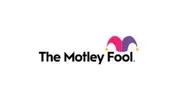
The Motley Fool
"Over time, financial markets tend to increase," says Dr. John Longo, Professor of Professional Practice in the Finance & Economics Department at Rutgers Business School. "That is, a rising tide lifts all investment boats or portfolios. Hence, active investors think they are probably performing well.
"However, investors rarely compare their performance in a rigorous manner to appropriate benchmarks, such as the S&P 500. If they did, they would probably find out that it is hard to beat the market and that investing in index funds makes sense for most people. Therefore, they are probably too optimistic or overconfident on their investment prowess."
"However, investors rarely compare their performance in a rigorous manner to appropriate benchmarks, such as the S&P 500. If they did, they would probably find out that it is hard to beat the market and that investing in index funds makes sense for most people. Therefore, they are probably too optimistic or overconfident on their investment prowess."

Rutgers News
The keynote address was by Rutgers-Newark Provost Jeffrey Robinson, a business school professor, who empathized with freshmen at the start of the semester, when making friends and adjusting to classes can feel intimidating. But he reassured them. “You are exactly where you’re supposed to be.’’
Robinson recalled his own journey to Rutgers in the late 1980s, when he arrived wearing “a high top fade, acid washed jeans and Adidas.’’
That year, he met classmate Randal Pinkett, with whom he started a company and who became a lifelong friend. Pinkett, a well-known entrepreneur, also became his co-author, most recently collaborating with Robinson on his book Black Faces in High Places: 10 Strategic Actions for Black Professionals to Reach the Top and Stay There.
Robinson told students that they, too, would find friends and collaborators that could last a lifetime, just like he did.
Robinson recalled his own journey to Rutgers in the late 1980s, when he arrived wearing “a high top fade, acid washed jeans and Adidas.’’
That year, he met classmate Randal Pinkett, with whom he started a company and who became a lifelong friend. Pinkett, a well-known entrepreneur, also became his co-author, most recently collaborating with Robinson on his book Black Faces in High Places: 10 Strategic Actions for Black Professionals to Reach the Top and Stay There.
Robinson told students that they, too, would find friends and collaborators that could last a lifetime, just like he did.

The Harvard Crimson
John M. Longo, a professor at Rutgers Business School and the Chief Investment Officer of Beacon Trust, wrote that it is “probably not a coincidence” that HMC’s increased investments in semiconductor companies occurred as the federal bill made its way to Biden’s desk.
“It's clear that HMC’s managers are optimistic about the prospects for semiconductor manufacturers,” Longo wrote.
“It's clear that HMC’s managers are optimistic about the prospects for semiconductor manufacturers,” Longo wrote.
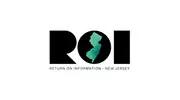
ROI-NJ
CUEED Executive Director Lyneir Richardson said the center’s goal is to facilitate access to $1 million of capital by helping Black business owners build relationships with banks and community development institutions by the end of 2022. To date, Black small business owners in the CUEED program have received more than $515,000 in new financing, Richardson said.
Lei Lei, dean of Rutgers Business School, commended CUEED’s work to help small business owners, such as DIGroup Architecture, recover from the pandemic.
“Our communities will continue to grow stronger as a result of CUEED’s impactful programs and M&T Bank’s commitment to support and empower small businesses,” she said.
Lei Lei, dean of Rutgers Business School, commended CUEED’s work to help small business owners, such as DIGroup Architecture, recover from the pandemic.
“Our communities will continue to grow stronger as a result of CUEED’s impactful programs and M&T Bank’s commitment to support and empower small businesses,” she said.
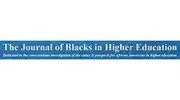
The Journal of Blacks in Higher Education
Jeffrey Robinson is the new provost and executive vice chancellor at the Newark campus of Rutgers University in New Jersey. He holds the Prudential Chair in Business and is a professor of management and global business at Rutgers Business School. He joined the faculty at Rutgers-Newark in 2008, where he has specialized in management and entrepreneurship.
“I am excited to contribute to the mission of Rutgers University-Newark as an anchor institution in the city and region,” Professor Robinson said. “Specifically, I look forward to focusing on innovation and economic development along with faculty recruitment and retentions. I am particularly drawn to RU-Newark’s strengths in the arts, STEM, and entrepreneurship.”
“I am excited to contribute to the mission of Rutgers University-Newark as an anchor institution in the city and region,” Professor Robinson said. “Specifically, I look forward to focusing on innovation and economic development along with faculty recruitment and retentions. I am particularly drawn to RU-Newark’s strengths in the arts, STEM, and entrepreneurship.”

MV Telegraph
Jeffrey Robinson, provost and executive vice-chancellor at Rutgers Business School and co-founder of the Center for Urban Entrepreneurship and Economic Development, said at the Small Business Playbook Virtual Summit that a big mistake business owners make is pricing new businesses don’t find out products until it’s too late. In times of high inflation, entrepreneurs must base the pricing of new items on a detailed analysis of the cost of production. A traditional way companies set prices – decide on the product and then, once it’s available, see what competitors are charging – isn’t the way to operate in this economy. Inflation requires small business owners to set the price by first understanding their costs.
“All of these prices along the supply chain have gone up,” Robinson said. “Shipping costs…anything that involves a transportation component, that cost has gone up. So if you evaluate and evaluate your product or service that you offer along with that cost before you set the price, you can set the price at the right level,” he said.
And then comes the hard part: explaining it to the customer. Robinson says the direct relationship small businesses have with their customers should also be viewed as an advantage.
“We have relationships. talk,” he said. “Explore. You have to explain to them that the cost of these components has increased. ‘In order for me to do that, I need to change some prices,'” he said.
“All of these prices along the supply chain have gone up,” Robinson said. “Shipping costs…anything that involves a transportation component, that cost has gone up. So if you evaluate and evaluate your product or service that you offer along with that cost before you set the price, you can set the price at the right level,” he said.
And then comes the hard part: explaining it to the customer. Robinson says the direct relationship small businesses have with their customers should also be viewed as an advantage.
“We have relationships. talk,” he said. “Explore. You have to explain to them that the cost of these components has increased. ‘In order for me to do that, I need to change some prices,'” he said.

LinkedIn
Educating Future Finance Professionals
Welcome to Talk With Kiet about people worth knowing, ideas worth sharing, and capital worth allocating. In this episode, Kiet Tran, FRM and Ronnee Ades, assistant professor of professional practice, Department of Finance & Economics, Rutgers Business School, talk about educating future finance professionals.
Welcome to Talk With Kiet about people worth knowing, ideas worth sharing, and capital worth allocating. In this episode, Kiet Tran, FRM and Ronnee Ades, assistant professor of professional practice, Department of Finance & Economics, Rutgers Business School, talk about educating future finance professionals.

New Jersey Business Magazine
Lei Lei, dean of Rutgers Business School, commended CUEED’s work to help small business owners, such as DIG Architecture, recover from the pandemic. “Our communities will continue to grow stronger as a result of CUEED’s impactful programs and M&T Bank’s commitment to support and empower small businesses,” she said
“The impact of the BEST Fund builds on research done by a beloved Rutgers Distinguished Professor, Dr. Jerome Williams, who passed away in 2021,” said Lyneir Richardson, executive director of CUEED.
“The impact of the BEST Fund builds on research done by a beloved Rutgers Distinguished Professor, Dr. Jerome Williams, who passed away in 2021,” said Lyneir Richardson, executive director of CUEED.

MSN
Costco probably makes little to no money on its hot dog and soda deal, but the offer gets customers in the door and likely fuels incremental sales, Longo said.
"How many people simply buy the hot dog combo and leave?" he questioned. "Perhaps some, but not most, shoppers."
Costco makes nearly all of its profits from membership fees, allowing it to maintain rock-bottom prices for some products like the hot dog combo, Longo said.
The strategy generates free publicity, fosters goodwill towards the brand, and drives member sign ups, he continued. It also increases customer loyalty, especially when almost every good and service outside Costco's doors is becoming more expensive, he added.
"They are telling their customers that they know times are tough due to high inflation, and that they are not taking advantage of them while they are down," Longo said.
"How many people simply buy the hot dog combo and leave?" he questioned. "Perhaps some, but not most, shoppers."
Costco makes nearly all of its profits from membership fees, allowing it to maintain rock-bottom prices for some products like the hot dog combo, Longo said.
The strategy generates free publicity, fosters goodwill towards the brand, and drives member sign ups, he continued. It also increases customer loyalty, especially when almost every good and service outside Costco's doors is becoming more expensive, he added.
"They are telling their customers that they know times are tough due to high inflation, and that they are not taking advantage of them while they are down," Longo said.
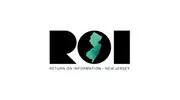
ROI-NJ
Women’s Equality Day?
Sure, it said that on the calendar Friday — and it can be seen in numerous social media posts by companies and organizations — but does it hold true? Does it represent, illustrate or even illuminate the challenges women truly face in the workplace?
To find out the answers to all this and more, ROI-NJ caught up with Lisa Kaplowitz, executive director of the Center for Women in Business at the Rutgers Business School. We wanted perspective on what Women’s Equality Day actually means to women in the workplace.
Kaplowitz said what a lot of women are feeling.
“It feels kind of empty,” she said. “Especially in business.”
Even more, it feels like the idea of equality in the workplace is not something that’s gaining momentum.
“It seems like we are moving backward,” Kaplowitz said. “Women are literally getting fewer and fewer rights, making it harder for them to succeed in the workplace.”
Kaplowitz said that the U.S. is one of the only industrial nations that does not have paid family leave and that companies are even cutting back on maternity and paternity leave.
There are challenges for women when they are in the workplace, too.
Kaplowitz feels that there is still an expectation that women only get promoted based on performance and men are promoted based on potential.
Sure, it said that on the calendar Friday — and it can be seen in numerous social media posts by companies and organizations — but does it hold true? Does it represent, illustrate or even illuminate the challenges women truly face in the workplace?
To find out the answers to all this and more, ROI-NJ caught up with Lisa Kaplowitz, executive director of the Center for Women in Business at the Rutgers Business School. We wanted perspective on what Women’s Equality Day actually means to women in the workplace.
Kaplowitz said what a lot of women are feeling.
“It feels kind of empty,” she said. “Especially in business.”
Even more, it feels like the idea of equality in the workplace is not something that’s gaining momentum.
“It seems like we are moving backward,” Kaplowitz said. “Women are literally getting fewer and fewer rights, making it harder for them to succeed in the workplace.”
Kaplowitz said that the U.S. is one of the only industrial nations that does not have paid family leave and that companies are even cutting back on maternity and paternity leave.
There are challenges for women when they are in the workplace, too.
Kaplowitz feels that there is still an expectation that women only get promoted based on performance and men are promoted based on potential.

Cointelegraph
According to the SEC definition that Congress is looking to affirm, any token in which users invest with “an expectation of profit” is likely to be a security.
For one, this definition is likely to include projects that incentivize liquidity pools.
Why do liquidity pools matter? Because users are “treating it as an investment,” blockchain expert and Rutgers Business School fintech professor Merav Ozair noted in an interview last month. “If it’s a token used to buy artifacts for the game, that’s not a security. But if you can take the token and use it for investments in securities, then that token has a different use case,” she said.
For one, this definition is likely to include projects that incentivize liquidity pools.
Why do liquidity pools matter? Because users are “treating it as an investment,” blockchain expert and Rutgers Business School fintech professor Merav Ozair noted in an interview last month. “If it’s a token used to buy artifacts for the game, that’s not a security. But if you can take the token and use it for investments in securities, then that token has a different use case,” she said.

Bloomberg Tax
There is a risk, however, that the court’s decision will create too much uncertainty about how to calculate multinational tax bills, according to Harvey Poniachek, a professor of practice in Rutgers Business School’s finance and economics department.
“An unspecified method is chaos,” he said. “Every expert is going to come up with a different methodology—so the sky is the limit.”
“An unspecified method is chaos,” he said. “Every expert is going to come up with a different methodology—so the sky is the limit.”

Forbes
By: Kristina Durante, Lisa Kaplowitz, Yuqian Chang, and Alexis Rittweger
In May 2020, at the height of the COVID-19 lockdown, our research team, including collaborators Yana van der Muelen Rogers, Elaine Zundl, and Sevinc Ulu, conducted a survey of working adults. We found that the early months of the pandemic ushered in an unforeseen bright spot for some working mothers — increased job satisfaction and productivity.
At first puzzling, a deeper look found that women’s increased career satisfaction was a result of the pandemic having reimagined the division of household labor: Fathers (forced to telework) were contributing more at home in households with opposite-gender partners.
In May 2020, at the height of the COVID-19 lockdown, our research team, including collaborators Yana van der Muelen Rogers, Elaine Zundl, and Sevinc Ulu, conducted a survey of working adults. We found that the early months of the pandemic ushered in an unforeseen bright spot for some working mothers — increased job satisfaction and productivity.
At first puzzling, a deeper look found that women’s increased career satisfaction was a result of the pandemic having reimagined the division of household labor: Fathers (forced to telework) were contributing more at home in households with opposite-gender partners.

The Hill
Although the Republican Party has historically deplored taxes, its most recent attacks on the Inflation Reduction Act of 2022 — which increases IRS funding by nearly $80 billion over a 10-year period — reach new depths of falsity, hypocrisy and potential danger to the nation’s financial stability.
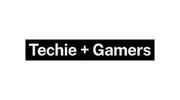
Techie + Gamer
Snack foods have a reputation for not being very healthy. Dr. Juan Salinas aimed to break this stereotype by creating P-nuff Crunch. It’s a plant-based, non-GMO puffed peanut snack. After pitching the product on Shark Tank, he made a deal with Mark Cuban, but it didn’t close. As of 2022, P-nuff Crunch is worth 3 million.
Juan Salinas is from Honduras, but he moved to New Jersey to get a better education. He got his bachelor’s, master’s, and doctor’s degrees in food science from Rutgers University. Later he earned an MBA from Rutgers Business School.
Juan Salinas is from Honduras, but he moved to New Jersey to get a better education. He got his bachelor’s, master’s, and doctor’s degrees in food science from Rutgers University. Later he earned an MBA from Rutgers Business School.

Forbes Advisor
“The concept of fungible versus non-fungible has been in our lives for centuries,” says Merav Ozair, blockchain expert and fintech professor at Rutgers Business School.
Ozair defines a fungible object as something interchangeable or indistinguishable from something else.
In this way, an NFT is a kind of non-fungible cryptocurrency. NFTs have all the same features as other blockchain technologies. A given NFT is immutable on the blockchain, and everybody can see its transactions, Ozair says.
“The value extends from the authentication and the uniqueness,” Ozair says.
Ozair defines a fungible object as something interchangeable or indistinguishable from something else.
In this way, an NFT is a kind of non-fungible cryptocurrency. NFTs have all the same features as other blockchain technologies. A given NFT is immutable on the blockchain, and everybody can see its transactions, Ozair says.
“The value extends from the authentication and the uniqueness,” Ozair says.

Newsweek
Senators Debbie Stabenow (D-Mich.) and John Boozman (R-Ark.) recently introduced legislation that would clearly define which regulators wield authority over two cornerstones of the cryptocurrency market—Bitcoin and Ethereum. Free-market advocates have reason to wholeheartedly support the proposal.
The consequences, if they fail to pipe up, could prove worse. "Eventually, someone is going to knock on their door," Rutgers Business School fintech professor Merav Ozair noted in an interview with a cryptocurrency website last month. "Look at what happens to a lot of those who say something like, 'Try it and see,' maybe they'll come after us and maybe they don't.' Eventually, they come. They get fined millions of dollars and they get closed down. No one wants to be in that situation, so why not think ahead?"
The consequences, if they fail to pipe up, could prove worse. "Eventually, someone is going to knock on their door," Rutgers Business School fintech professor Merav Ozair noted in an interview with a cryptocurrency website last month. "Look at what happens to a lot of those who say something like, 'Try it and see,' maybe they'll come after us and maybe they don't.' Eventually, they come. They get fined millions of dollars and they get closed down. No one wants to be in that situation, so why not think ahead?"

Prittle Prattle News
Over the past 20 years, Richard Romano, president of the foundation and a member of Rutgers Business School’s board of advisors, has helped make more than $1 million in funding available to student and alumni founders.
“The business plan competition is significant in a couple of ways,” said Professor Doug Brownstone, who organizes the competition. “Student entrepreneurs are able to win money to get their businesses accelerated and the top five teams also get mentoring.”
In addition to Romano, the judges for the 2022 competition included John Wilson, who also represents the Sales Executive Club of Northern New Jersey Foundation; Sharon Lydon, Rutgers Business School’s associate dean of alumni and corporate engagement; and Carolyn Lange, chief financial officer of the Community Foundation of New Jersey.
“The business plan competition is significant in a couple of ways,” said Professor Doug Brownstone, who organizes the competition. “Student entrepreneurs are able to win money to get their businesses accelerated and the top five teams also get mentoring.”
In addition to Romano, the judges for the 2022 competition included John Wilson, who also represents the Sales Executive Club of Northern New Jersey Foundation; Sharon Lydon, Rutgers Business School’s associate dean of alumni and corporate engagement; and Carolyn Lange, chief financial officer of the Community Foundation of New Jersey.

MSN
Jeffrey Robinson, Rutgers Business School provost and executive vice-chancellor, and co-founder of the Center for Urban Entrepreneurship and Economic Development, said at the Small Business Playbook virtual summit that one big mistake business owners make is to not figure out pricing on new products until it is too late. At a time of high inflation, entrepreneurs need to be basing any pricing of new items on a detailed analysis of the costs that go into producing it. A traditional way that businesses set pricing — decide on the product and then once it is available look at what competitors are charging — is not the way to operate in this economy. Inflation requires that small business owners set price by, first and foremost, understanding their costs.
"All those prices along the supply chain have gone up," Robinson said. "The shipping costs ... anything that has any component of transportation involved, those costs have gone up. So assessing and valuing your product or service that you're providing along those costs, before you set the price, allows you to set the price at the right level," he said.
And then comes the hard part: explaining it to the customer. Robinson says the direct relationship that small businesses have with their customers should be seen as an advantage, too.
"We have relationships. Talk," he said. "Explore. You've got to explain to them that the costs have gone up for these components. 'In order for me to do this, I have to change some pricing,'" he said.
"All those prices along the supply chain have gone up," Robinson said. "The shipping costs ... anything that has any component of transportation involved, those costs have gone up. So assessing and valuing your product or service that you're providing along those costs, before you set the price, allows you to set the price at the right level," he said.
And then comes the hard part: explaining it to the customer. Robinson says the direct relationship that small businesses have with their customers should be seen as an advantage, too.
"We have relationships. Talk," he said. "Explore. You've got to explain to them that the costs have gone up for these components. 'In order for me to do this, I have to change some pricing,'" he said.

Yahoo! Finance
Rutgers University – Newark has named Jeffery Robinson as the University Provost and executive chancellor.
Robinson, a Professor of Management and Global Business at Rutgers Business School (RBS), has been with the University since 2008 and started the position July 1. The professor is well known for his award-winning teaching and leadership roles. Additionally, Robinson specializes in management and entrepreneurship and serves as the Academic Director of the Center for Urban Entrepreneurship and Economic Development (CUEED).
Last year, Rutgers University named Robinson the Prudential Chair in Business, a chair established through a gift from Prudential Financial Inc., which helps to advance a multidisciplinary approach to business education with a focus on science, technology, social justice and ethics.
“I am honored to follow in the footsteps of Dr. Jerome Williams,” Robinson said in a Rutgers University release last December. “His pioneering work at the intersection of business and society has been inspirational to me and numerous other scholars. In many ways, my academic work and scholarship shares themes that Jerome made prominent throughout his career by connecting social justice and community concerns with value creation in the economy and society.”
Robinson, a Professor of Management and Global Business at Rutgers Business School (RBS), has been with the University since 2008 and started the position July 1. The professor is well known for his award-winning teaching and leadership roles. Additionally, Robinson specializes in management and entrepreneurship and serves as the Academic Director of the Center for Urban Entrepreneurship and Economic Development (CUEED).
Last year, Rutgers University named Robinson the Prudential Chair in Business, a chair established through a gift from Prudential Financial Inc., which helps to advance a multidisciplinary approach to business education with a focus on science, technology, social justice and ethics.
“I am honored to follow in the footsteps of Dr. Jerome Williams,” Robinson said in a Rutgers University release last December. “His pioneering work at the intersection of business and society has been inspirational to me and numerous other scholars. In many ways, my academic work and scholarship shares themes that Jerome made prominent throughout his career by connecting social justice and community concerns with value creation in the economy and society.”
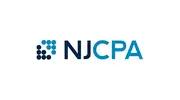
NJCPA
The 150-hour credit requirement may scare off a few students, but I think most students who are interested in accounting are not deterred by the requirement. Many students finish the 150 hours during their undergraduate education — they either double major or just take miscellaneous extra credits each semester or some come in with AP credits. When students go this route, time and cost are not as much of an issue — they are often finishing the 150 credits within about four years and there is not a significant extra cost. However, I worry that some students are not getting the full benefit of their education with this approach — cramming so many classes into four years.
I wish that more students would pursue a master’s degree in the completion of their 150 credit hours — I’ve always said that if you are going to take 30 additional credits, you might as well turn that into a degree with a focus on accounting or business! But with the master’s degree, I do think time and cost are a deterrent — some students don’t want to spend the extra time to complete the degree, or the cost is simply too much.
But schools and firms can encourage students — schools can make students aware of the value of a master’s program and provide scholarships to help defray the cost. And employers can also provide scholarships and tuition reimbursement, as well as the flexibility to allow their new hires to pursue a master’s degree while working, if necessary.
I wish that more students would pursue a master’s degree in the completion of their 150 credit hours — I’ve always said that if you are going to take 30 additional credits, you might as well turn that into a degree with a focus on accounting or business! But with the master’s degree, I do think time and cost are a deterrent — some students don’t want to spend the extra time to complete the degree, or the cost is simply too much.
But schools and firms can encourage students — schools can make students aware of the value of a master’s program and provide scholarships to help defray the cost. And employers can also provide scholarships and tuition reimbursement, as well as the flexibility to allow their new hires to pursue a master’s degree while working, if necessary.
The Inquirer
Mahmud Hassan, professor at the Rutgers University Business School and a drugstore expert, warns: “There are too many pharmacies in the country.”
“Rite Aids are facing stiff competition from Walgreens, CVS, Amazon and Walmart and the mail-order services,” Hassan said. “They are not selling enough. They have low revenues and a high-cost structure.”
“Rite Aids are facing stiff competition from Walgreens, CVS, Amazon and Walmart and the mail-order services,” Hassan said. “They are not selling enough. They have low revenues and a high-cost structure.”

HerMoney
Lisa S. Kaplowitz, assistant professor of professional practice of finance at Rutgers Business School, includes a postscript on her outgoing emails that states: “I am sending this email at a time that is convenient for me and realize you may be juggling other priorities right now. Please read and respond at a time that is convenient for you.”
Kaplowitz says she saw something similar and began including the P.S. in her outgoing messages.
Kaplowitz says she saw something similar and began including the P.S. in her outgoing messages.

WTOP News
Ethereum, on the other hand, “aims to function as a ‘decentralized world computer,’ which allows for the implementation of decentralized applications and alternative forms of utility,” says Perfumo. Put simply, Ethereum is like iOS or Android, a platform that developers are using to build applications, says Merav Ozair, blockchain expert and fintech professor at Rutgers Business School.

CNBC
CNBC, First in Business Worldwide, today announced the lineup for Small Business Playbook: Opportunity Amidst Uncertainty, which will take place online on Wednesday, August 3rd at 1pm ET.
As inflation continues to reach record highs and the possibility of recession looming, it is more important than ever for entrepreneurs to think strategically and bolster all facets of their business to withstand today’s turbulence and emerge stronger for a better tomorrow. The CNBC Small Business Playbook virtual summit will offer insight and advice from top experts on how businesses can hedge against inflation, supply chain disruptions, labor challenges, and more.
CNBC Small Business Playbook speakers include Jeffrey Robinson, Provost and Executive Vice-Chancellor, Rutgers Business School
As inflation continues to reach record highs and the possibility of recession looming, it is more important than ever for entrepreneurs to think strategically and bolster all facets of their business to withstand today’s turbulence and emerge stronger for a better tomorrow. The CNBC Small Business Playbook virtual summit will offer insight and advice from top experts on how businesses can hedge against inflation, supply chain disruptions, labor challenges, and more.
CNBC Small Business Playbook speakers include Jeffrey Robinson, Provost and Executive Vice-Chancellor, Rutgers Business School

The Wall Street Journal
Big businesses are pushing hard to wring profits out of the smaller companies that supply them with goods and services. One type of deal, known as a supply-chain finance rebate, has come under the spotlight of accounting groups for obscuring who benefits most from the arrangements and whether that masks true financial risk.
Much of the industry shuns rebates, said Rudolf Leuschner, director of the master of supply-chain management program at Rutgers Business School. The industry relies on a 2004 U.S. Securities and Exchange Commission speech as the seminal guide to best practices. Bankers and accountants typically interpret the speech as advising against rebates or financial incentives.
Much of the industry shuns rebates, said Rudolf Leuschner, director of the master of supply-chain management program at Rutgers Business School. The industry relies on a 2004 U.S. Securities and Exchange Commission speech as the seminal guide to best practices. Bankers and accountants typically interpret the speech as advising against rebates or financial incentives.
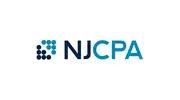
NJCPA
Schools are perfect outlets for mentoring by offering information sessions and seminars. They also provide specific mentoring opportunities by pairing students with professionals in the field — alumni are a great resource in this area. Others can learn from Rutgers Business School’s example, which offers one-on-one mentoring opportunities as part of a Road to CPA program.
Guidance need not end upon graduation — accounting firms and corporations can also provide one-on-one mentoring. Upon joining an organization, new hires can be paired with more-experienced colleagues.
Guidance need not end upon graduation — accounting firms and corporations can also provide one-on-one mentoring. Upon joining an organization, new hires can be paired with more-experienced colleagues.

Northjersey.com
"Influence marketing has been around forever," said Stacy Smollin Schwartz, a marketing professor at Rutgers Business School. It is, she said, a "very effective tool," a tool that "social media knocked out of the park." Last year, 19% of Americans bought something because an influencer recommended it, according to Harvard Business Review. Among those under 25 years old, the number rose to 36%.

U.S. News & World Report
Many investors are wary of cryptocurrencies because they are still unfamiliar and, as yet, largely unregulated. Although bad actors and scams may ding the reputation of the entire ecosystem, as far as the overall crypto industry is concerned, there are also "a lot of good projects and good people" working on digital asset products, says Merav Ozair, blockchain expert and fintech professor at Rutgers Business School.

CBS News
The recent cryptocurrency crash is a major reason behind cooling interest in NFTs, said blockchain expert Merav Ozair, who teaches financial technology at Rutgers University. That's because buyers often use bitcoin, ethereum or other digital currencies to purchase NFTs, and falling crypto prices reduce their purchasing power.

Yahoo!
"Our corporate partners like Walker & Dunlop are extremely important because of the experiential learning opportunities and support they provide," Lei Lei, dean of Rutgers Business School, said in Rutgers' announcement of the new sponsorship. "Our students will be able to apply their knowledge in real-world situations offering them powerful learning experiences and strengthening their time in the classroom."
"It is an honor for Rutgers to have Walker & Dunlop as a corporate partner, given its long history of excellence and its commitment to diversity in commercial real estate," said Morris A. Davis, the Paul J. Profeta Chair of Real Estate and academic director for the Rutgers Center for Real Estate. "We look forward to exploring all the possible benefits to our students."
"It is an honor for Rutgers to have Walker & Dunlop as a corporate partner, given its long history of excellence and its commitment to diversity in commercial real estate," said Morris A. Davis, the Paul J. Profeta Chair of Real Estate and academic director for the Rutgers Center for Real Estate. "We look forward to exploring all the possible benefits to our students."

Yahoo! Finance
Merav Ozair, a blockchain expert and FinTech professor at Rutgers Business School, says what makes this crypto winter different from previous downturns is that its speculative nature isn’t completely to blame.
“Today, the crypto market is very much correlated and in tune with everything that is happening in the economy and with other asset classes,” says Ozair. “So if everything is suffering, the crypto market will also suffer.”
“Today, the crypto market is very much correlated and in tune with everything that is happening in the economy and with other asset classes,” says Ozair. “So if everything is suffering, the crypto market will also suffer.”
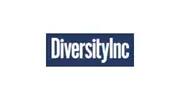
DiversityInc.
During a webinar titled “Ensuring Reproductive Health: What Are Companies Doing,” presented by Rutgers University’s Center for Women in Business, attendees wrote how they feel about the decision, which appeared in a word cloud on the screen. Those words included disgusted, enraged, angry, disappointed and outraged, just to name a few.
Yana van der Meulen Rodgers, a professor in the Department of Labor Studies and Employment Relations at Rutgers University and Faculty Director of the Center for Women and Work at Rutgers, laid out the economic implications of abortion bans and restrictions from a microeconomic aspect, a mesoeconomic aspect and a macroeconomic aspect, showing the implications for local economies in states with and without abortion bans.
Yana van der Meulen Rodgers, a professor in the Department of Labor Studies and Employment Relations at Rutgers University and Faculty Director of the Center for Women and Work at Rutgers, laid out the economic implications of abortion bans and restrictions from a microeconomic aspect, a mesoeconomic aspect and a macroeconomic aspect, showing the implications for local economies in states with and without abortion bans.

Global Herald
It is never too soon to discuss ethics in the #metaverse. Rutgers Business School Blockchain Expert & FinTech Professor Merav Ozair joins Jill Malandrino on Nasdaq #TradeTalks to discuss.

WalletHub
Is it fair for consumers to assume that the most popular credit cards are the best credit cards?
No, not at all. Popularity could be due to many different reasons. A new card, to compete, may offer some of the best privileges, awards, service, etc. along with easier credit card approval and obviously would not rank among the most well-known cards. Eventually, the best card for an individual depends on the functionality and needs of the individual.
What do you think are the biggest factors that affect the popularity of a credit card offer?
Several factors may be at play. Popularity can be traced to easy acceptance with different vendors worldwide. Some credit card issuers offer teasers such as low-interest rate offers, cash back on purchases, various rewards programs along with balance transfer offers. However, if there is an annual fee, then it could temper demand.
No, not at all. Popularity could be due to many different reasons. A new card, to compete, may offer some of the best privileges, awards, service, etc. along with easier credit card approval and obviously would not rank among the most well-known cards. Eventually, the best card for an individual depends on the functionality and needs of the individual.
What do you think are the biggest factors that affect the popularity of a credit card offer?
Several factors may be at play. Popularity can be traced to easy acceptance with different vendors worldwide. Some credit card issuers offer teasers such as low-interest rate offers, cash back on purchases, various rewards programs along with balance transfer offers. However, if there is an annual fee, then it could temper demand.

Goblin Crypto
Blockchain expert and Rutgers Business School Fintech Professor Dr. Merav Ozair holds illustrious credentials in the cryptocurrency world. In addition to her role at the university, she serves as an academic advisory board member for the International Association for Trusted Blockchain Applications (INATBA), and as editor-in-chief of the World Scientific Series in FinTech at World Scientific Publishing.
In an interview with GoblinCrypto last week, Ozair shared her assessment of the Responsible Financial Innovation Act proposed in June by Sens. Cynthia Lummis (R-WY) and Kirsten Gillibrand (D-NY). She said the law — which could pass as early as next year — could carry big consequences for crypto developers, who would see a vast swath of cryptos and non-fungible tokens (NFTs) reclassified as securities.
In an interview with GoblinCrypto last week, Ozair shared her assessment of the Responsible Financial Innovation Act proposed in June by Sens. Cynthia Lummis (R-WY) and Kirsten Gillibrand (D-NY). She said the law — which could pass as early as next year — could carry big consequences for crypto developers, who would see a vast swath of cryptos and non-fungible tokens (NFTs) reclassified as securities.

MSN
While some may be concerned about reduced competition, Merav Ozair, blockchain expert and a fintech professor at Rutgers Business School, said "the fact that you have more competitors doesn't mean that it's better if you're not providing good service and good products."
"It's always better to have more competitors," she said. "The free markets are all about competition. But are those small players better? Do they provide you better service? In the case of Celsius, probably not."
"It's always better to have more competitors," she said. "The free markets are all about competition. But are those small players better? Do they provide you better service? In the case of Celsius, probably not."

Protocol
“The statement is insufficient,” said activist and Rutgers Business School professor Jeana Wirtenberg. “If it’s disingenuous and they don’t put any action behind it, it can cause more harm than good.”

Yahoo! Sports
Just like with traditional assets, those who have more money are more likely to be investors, says Merav Ozair, a blockchain expert and FinTech professor at Rutgers Business School.
“I'm not surprised to hear that,” Ozair said after reviewing the Fed’s figures. “This is exactly in line with what I know about this ecosystem and the research that I'm doing."
Ozair explained that those who use crypto for investing are “basically looking for profit,” so they treat it like other asset classes, like stocks and futures.
“I'm not surprised to hear that,” Ozair said after reviewing the Fed’s figures. “This is exactly in line with what I know about this ecosystem and the research that I'm doing."
Ozair explained that those who use crypto for investing are “basically looking for profit,” so they treat it like other asset classes, like stocks and futures.

Radiology Business
Medical writer Joe Hannan speaks with a supply chain specialist at Rutgers Business School who points out that healthcare’s life-and-death character doesn’t exempt it from the basic forces of supply and demand.
The pandemic supercharged healthcare demand, notes David Dreyfus, PhD, just as similar pressures bore down across industries due to clogged shipping lanes, paralyzed ports, labor shortages and, not least, Chinese factories closed by lockdowns.
More than a few hospitals and health systems reacted by overordering.
“Then it really falls to these distributors, these manufacturers, to somehow ethically distribute” the coveted supplies, Dreyfus tells Hannan. “They know everybody’s going to be getting less than what they’re asking for because people are trying to hoard.”
The pandemic supercharged healthcare demand, notes David Dreyfus, PhD, just as similar pressures bore down across industries due to clogged shipping lanes, paralyzed ports, labor shortages and, not least, Chinese factories closed by lockdowns.
More than a few hospitals and health systems reacted by overordering.
“Then it really falls to these distributors, these manufacturers, to somehow ethically distribute” the coveted supplies, Dreyfus tells Hannan. “They know everybody’s going to be getting less than what they’re asking for because people are trying to hoard.”

Radiology Business
Medical writer Joe Hannan speaks with a supply chain specialist at Rutgers Business School who points out that healthcare’s life-and-death character doesn’t exempt it from the basic forces of supply and demand.
The pandemic supercharged healthcare demand, notes David Dreyfus, PhD, just as similar pressures bore down across industries due to clogged shipping lanes, paralyzed ports, labor shortages and, not least, Chinese factories closed by lockdowns.
More than a few hospitals and health systems reacted by overordering.
“Then it really falls to these distributors, these manufacturers, to somehow ethically distribute” the coveted supplies, Dreyfus tells Hannan. “They know everybody’s going to be getting less than what they’re asking for because people are trying to hoard.”
The pandemic supercharged healthcare demand, notes David Dreyfus, PhD, just as similar pressures bore down across industries due to clogged shipping lanes, paralyzed ports, labor shortages and, not least, Chinese factories closed by lockdowns.
More than a few hospitals and health systems reacted by overordering.
“Then it really falls to these distributors, these manufacturers, to somehow ethically distribute” the coveted supplies, Dreyfus tells Hannan. “They know everybody’s going to be getting less than what they’re asking for because people are trying to hoard.”

Moguldom Nation
Dr. Merav Ozair, a blockchain expert and fintech professor at Rutgers Business School, echoed Bryant’s advice in an interview with DebtHammer.
“Never take a loan to invest. Only invest money you have to spare,” Ozair told DebtHammer. “A lot of people think they can become a millionaire in a day, which never happens.”
Ozair also told DebtHammer potential investors should never leverage an asset — like their home or car — on a speculative investment.
“Never take a loan to invest. Only invest money you have to spare,” Ozair told DebtHammer. “A lot of people think they can become a millionaire in a day, which never happens.”
Ozair also told DebtHammer potential investors should never leverage an asset — like their home or car — on a speculative investment.

MDLinx
David Dreyfus, PhD, an assistant professor in the supply chain management department of Rutgers Business School, told MDLinx that healthcare is subject to the same supply-chain pressures as other industries. COVID-19 shifted demand patterns, making it difficult for inventory managers to determine accurate levels of groceries and PPE to order.
Combine fickle demand with congested ports, labor shortages, China’s zero COVID policy shuttering factories, plus inflation, and you’ve got a recipe for a supply-chain crisis.
“Even if things are going well here in the US, we rely so much on the world to supply us different parts and materials that complications can still arise.”
Combine fickle demand with congested ports, labor shortages, China’s zero COVID policy shuttering factories, plus inflation, and you’ve got a recipe for a supply-chain crisis.
“Even if things are going well here in the US, we rely so much on the world to supply us different parts and materials that complications can still arise.”

The Christian Science Monitor
Latinos own more businesses nationwide than any racial or ethnic group other than white Americans, and they start more businesses than any other group, opening them at four times the rate of other demographics, says Arturo Osorio, associate professor of entrepreneurship at Rutgers University in New Jersey. He says they are undaunted by the fact that most new businesses fail within 10 years because, often, they have no other choice.